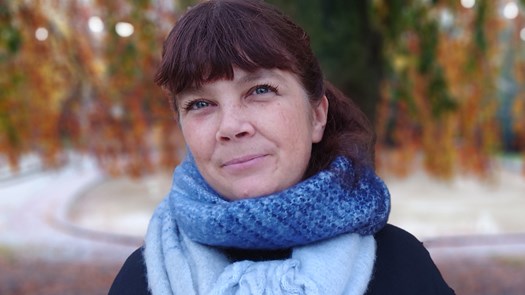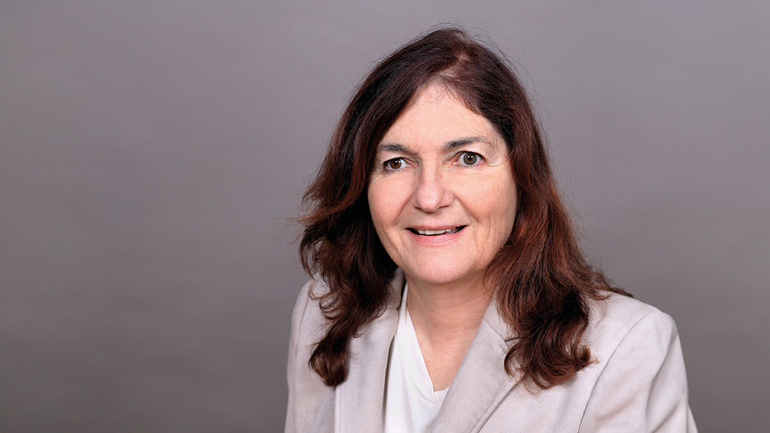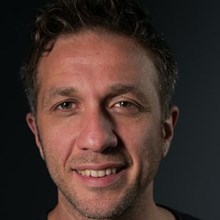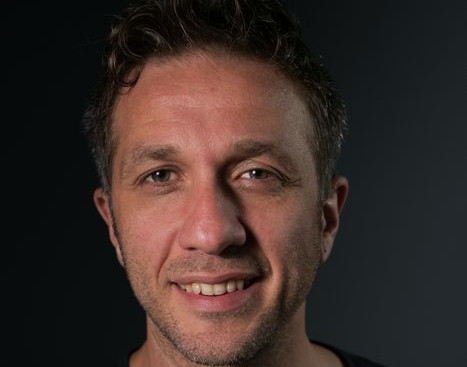We use cookies on this website. Cookies help us deliver the best experience on our website. Read about cookies.
-
- Education
- Education
- Programmes and courses
- Applications and admissions
- Tuition fees
- Scholarships
- Exchange studies at Malmö University
- Study Guidance
-
- After admission
- After admission
- Moving to Malmö
- Pre-orientation
- Arrival guide
-
- About studies at Malmö University
- About studies at Malmö University
- Why choose Malmö University
- Understanding university studies
- Connect with our students
On the page -
- Research
- Research
-
- Doctoral studies
- Doctoral studies
- Doctoral courses
-
- Doctoral schools
- Doctoral schools
- Adaptation of urban space through sustainable regeneration
- ComBine
- Culturally Empowering Education through Language and Literature
- Education, Learning and Globalisation
- Finding ways in a time of great future challenges (FinnFram)
- Swedish National Graduate School in Science and Technology Education Research
- Learning in Multicultural Societal Contexts
- Pedagogy and Vocational Skills
- Relevancing Mathematics and Science Education (RelMaS)
- Sustainable Movement Education
- The National Research School for Professionals in Social Services
- Research subjects
-
- Research centres
- Research centres
- Biofilms Research Centre for Biointerfaces
- Citizen Health
- Imagining and Co-Creating Futures
- Institute for Urban Research
- Malmö Institute for Migration Studies
- Literacy and Inclusive Teaching
- Centre for Work Life Studies
- Sustainable Digitalisation Research Centre
- Centre for Sexology and Sexuality Studies
-
- Research publications
- Research publications
- Search for research publications in Diva
- Malmö University Press
- Research events
- Participate in a research study
- Coffee Break Quiz
On the page -
- Collaboration and Innovation
- Collaboration and Innovation
-
- Levels of collaboration
- Levels of collaboration
-
- Local collaboration
- Local collaboration
- Muvah
- Regional collaboration
- National collaboration
- International collaboration
- Innovation
- Collaboration with students
-
- Collaborate with researchers
- Collaborate with researchers
- Labs and facilities
- Culture collaboration
- Support Malmö University
- Alumni & Friends
On the page -
- About us
- About us
-
- Job opportunities
- Job opportunities
- Apartments for researchers
- Current vacancies
- Meet our staff
- Employee benefits
- HR Excellence in Research award
- EURAXESS
-
- Faculties and departments
- Faculties and departments
-
- Faculty of Culture and Society
- Faculty of Culture and Society
- Department of Global Political Studies
- School of Arts and Communication
- Department of Urban Studies
-
- Faculty of Education and Society
- Faculty of Education and Society
- Department of Childhood, Education and Society
- Department of Sports Sciences
- Department of Culture, Languages and Media
- Department of Natural Science, Mathematics and Society
- Department of Society, Culture and Identity
- Department of School Development and Leadership
- The Centre for Teaching and Learning (CAKL)
-
- Faculty of Technology and Society
- Faculty of Technology and Society
- Department of Computer Science and Media Technology
- Department of Materials Science and Applied Mathematics
- Faculty of Odontology
- University Dental Clinic
-
- Find and contact Malmö University
- Find and contact Malmö University
- Visit Malmö University
-
- News and press
- News and press
- Graphic manual
- Map of the buildings (Google Maps)
- Merchandise
- Supplier information and invoice management
- Whistleblowing
- We will help you with your questions
- Management and decision-making paths
-
- Malmö University's strategy 2030
- Malmö University's strategy 2030
- Sustainability
- Widened recruitment and participation
- Quality assurance work at the University
-
- Malmö Academic Choir and Orchestra
- Malmö Academic Choir and Orchestra
- Student work – video pieces
-
- Annual Academic Celebration
- Annual Academic Celebration
- Academic traditions
- Meet our new professors
- Meet our new doctors
- Honorary doctors
-
- The University in a troubled world
- The University in a troubled world
- Campus total defence
On the page
Meet our staff
staff members
Malmö University employs 1800 employees who all contribute to a more sustainable and equal society through research-based knowledge, critical reflection and commitment. Many are researchers and lecturers, but we also have accountants, HR and communication specialists, as well as IT and administrative staff.
What is it like working at Malmö University?
Learn about some of our staff members and why they enjoy working here.
Staff films
Jakob Svensson, professor
Jakob Svensson, professor
"Malmö University stands for human rights and is an inclusive, open and tolerant university that respects differences; we employees are different and look different. We have a diverse community here at the University", says Jakob Svensson. "The University does not have traditional divisions between different subjects and faculties, and it's exciting to have the opportunity to meet across subject boundaries.
Pia Jönsson St George, adjunct
Pia Jönsson St George, adjunct
"After working in England for 20 years, I thought it would be boring to move back to Sweden and work in such a monocultural context, but that's not the case here; Malmö is very multicultural," säger Pia Jönsson St George. "It's fun to work here. The University has a slightly bolder profile and it dares to be less traditional in its approach to what, and in what ways, you can teach. It's also a luxury to have Malmö Central Station right next to the University, because I live in the countryside."
Staff films
Björn Nilsson, IT educator
Björn Nilsson, IT educator
"Having freedom with responsibility and the ability to influence your workweek, combined with many days of holiday and leave, makes it easy to balance work and private life," says Björn Nilsson. "I also have many competent and nice colleagues, which makes it fun to be at work."
Palwasha Momand, doctoral student
Palwasha Momand, doctoral student
"It's obvious that you should choose Malmö University for your doctoral studies. Malmö is the best city in the world and the University is the best workplace in the world - is there an alternative?" says Palwasha Momand and smiles. "At Malmö University, there's room to grow as an individual and within the organisation."
Malmö University is a magical place for daring to think afresh and look ahead.
Sara Kjellberg
Interviews with employees
Sara Kjellberg, library director, Malmö University Library

Sara Kjellberg, library director, Malmö University Library
"There is always more to do, and I have fantastic people around me to do this with, at the University Library as well as the rest of the University. Malmö University is a magical place for daring to think afresh and look ahead."
Ewa-Marie Siwerson, study administrator

Ewa-Marie Siwerson, study administrator
"The best thing about my job is that my tasks are so varied, as well as all my wonderful colleagues and contacts with the students, teaching staff, other institutions and the Police Authority. I can manage my own tasks and I am trusted with a great deal of responsibility."
Niklas Nannskog, international liaison officer

Niklas Nannskog, international liaison officer
"My colleagues of course, and the opportunity to learn about so many different fields and to meet interesting people."

Nathalie Auer – senior lecturer
"It’s great to work at a university with students from so many different backgrounds and help them succeed in academia – and generally in life. Working with student diversity can give rise to new pedagogical methods so that we can better address students’ needs."

Nathalie Auer – senior lecturer
"It’s great to work at a university with students from so many different backgrounds and help them succeed in academia – and generally in life. Working with student diversity can give rise to new pedagogical methods so that we can better address students’ needs."
What is your role at Malmö University?
I work as a senior lecturer, educational developer and researcher at the Centre for Teaching and Learning. I collaborate with our faculties and departments on a range of teaching and learning activities and facilitate some of our professional development courses. My research spans across different areas involving digital literacy, digital learning, and metacognition.
Currently, I participate in a research project investigating how future learning environments will be organised and whether hybrid teaching/blended learning will develop and replace traditional on campus teaching.
What is best about your workplace?
I can learn a lot from my colleagues and thay push me to take on new challenges. I started here in 2020, right in the middle of the pandemic. It wasn’t easy, but my colleagues from all over the University, especially at the Centre of Teaching and Learning, made me feel welcome from the very beginning. The workplace is very inclusive – something I highly appreciate.
I must also mention diversity. It’s great to work at a university with students from so many different backgrounds and help them succeed in academia – and in life in general. Working with student diversity can give rise to new pedagogical methods so that we can better address students’ needs. There are several ongoing research projects and activities that contribute to pedagogical development within higher education.
What did you do before joining us?
My career in higher education started at the University of Southern Denmark, where I worked in the field of applied linguistics and pedagogy. During these years, I became interested in learning technology, and after earning my PhD on online education and learning technologies from the University of Leicester, I’ve worked with digitalisation in several educational institutions and as a teacher and instructional designer.
How do you find working in Sweden and Malmö?
Malmö is a very international city. Although it’s small, we have a lot of activity and innovation potential. The University is international and open to new perspectives and ideas.
Then there is, of course, the Swedish ‘fika’. It’s quite unique how important the social coffee break is at the workplaces here. I must say that I’ve perfectly adjusted to this cultural practice.

Simone Vegliò – postdoctoral researcher
"Being social and having a good time with colleagues is part of the culture here, which positively surprised me when I arrived. Such an environment fuels a good and productive working culture."

Simone Vegliò – postdoctoral researcher
"Being social and having a good time with colleagues is part of the culture here, which positively surprised me when I arrived. Such an environment fuels a good and productive working culture."
What do you do at Malmö University?
I started as a postdoc at the Institute for Urban Research in September 2021, and I’m also a part of the Department of Urban Studies. I spend most of my working time with a research project on urban transformation in Buenos Aires, but I also do some teaching and administrative work.
What is the best thing about your workplace?
The first thing that comes to my mind is the friendly and comfortable environment. Being social and having a good time with colleagues is part of the culture here, which positively surprised me when I arrived. Such an environment fuels a good and productive working culture.
During my first days, I also received help with some practicalities and issues one faces when moving to Sweden. I was new to many practices here, but I learnt quickly. Small things like daily chats, coffee breaks and lunches with my colleagues really make a difference.
What did you do before joining us?
My career path has been quite interdisciplinary and full of intersections. I started my academic journey by studying literature in Italy, after which I studied international relations in Buenos Aires. Later, I ended up earning my PhD in geography at King’s College London in the UK. I have now specialised in human, urban and political geography.
Before applying for my current position, I participated in a conference organised by Malmö University and got a very positive feeling about the work environment. So, I was very excited to find out about this position.
What in your work excites you the most?
I’m currently exploring the most recent geopolitical and economic transformations in Buenos Aires from a postcolonial perspective – transformations that also have an important global impact. It's fascinating to investigate the different geographies of politics and economics and to get to dive into this specific country and explore its role within a global dimension.
This is an interesting way of looking at urban transformations and their social impact, and I hope that my study will bring a new perspective to urban studies research at Malmö University. Conversations with my colleagues are also a very fruitful source for new ideas for me.
Living and working in Malmö and Scandinavia, and having the possibility to also conduct my research in Latin America, gives me a geographically very wide and original perspective. This is all very exciting.